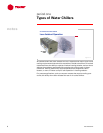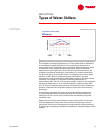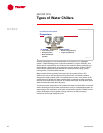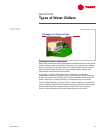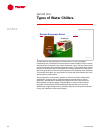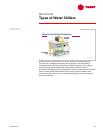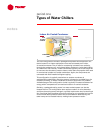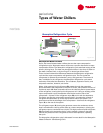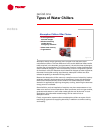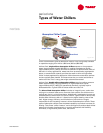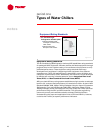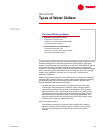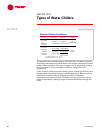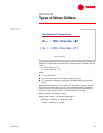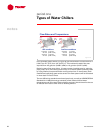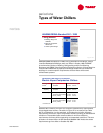
16 TRG-TRC016-EN
notes
period one
Types of Water Chillers
Absorption water chillers generally have a higher first cost than vapor-
compression chillers. The cost difference is due to the additional heat-transfer
tubes required in the absorber and generator(s), the solution heat exchangers,
and the cost of the absorbent. This initial cost premium is often justified when
electric demand charges or real-time electricity prices are a significant portion
of the electric utility bill. Because electric demand charges are often highest at
the same time as peak cooling requirements, absorption chillers are often
selected as peaking or demand-limiting chillers.
Because the absorption chiller uses only a small amount of electricity, backup-
generator capacity requirements may be significantly lower with absorption
chillers than with electrically-driven chillers. This makes absorption chillers
attractive in applications requiring emergency cooling, assuming the alternate
energy source is available.
Some facilities, such as hospitals or factories, may have excess steam or hot
water as a result of normal operations. Other processes, such as a gas turbine,
generate waste steam or some other waste gas that can be burned. In such
applications, this otherwise wasted energy can be used to fuel an
absorption chiller.
Finally, cogeneration systems often use absorption chillers as a part of their
total energy approach to supplying electricity in addition to comfort cooling
and heating.
Absorption Chillers Offer Choice
▲ Avoid high electric
demand charges
▲ Minimal electricity
needed during
emergency situations
▲ Waste heat recovery
▲ Cogeneration
Figure 19



